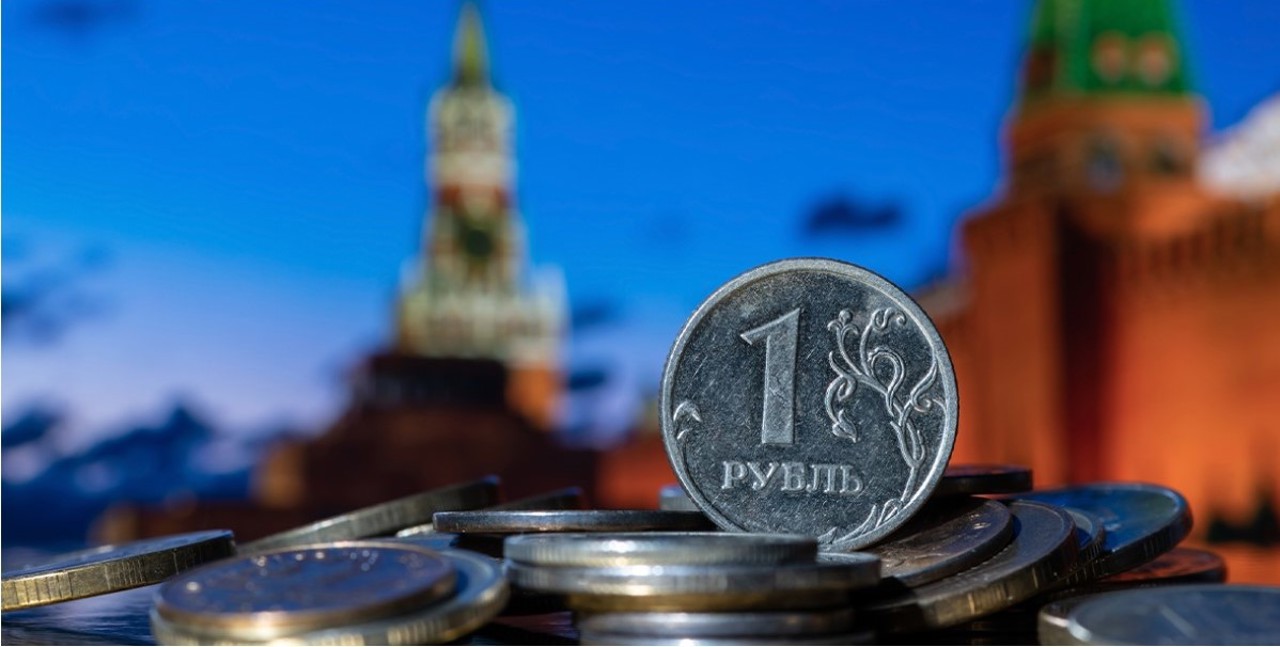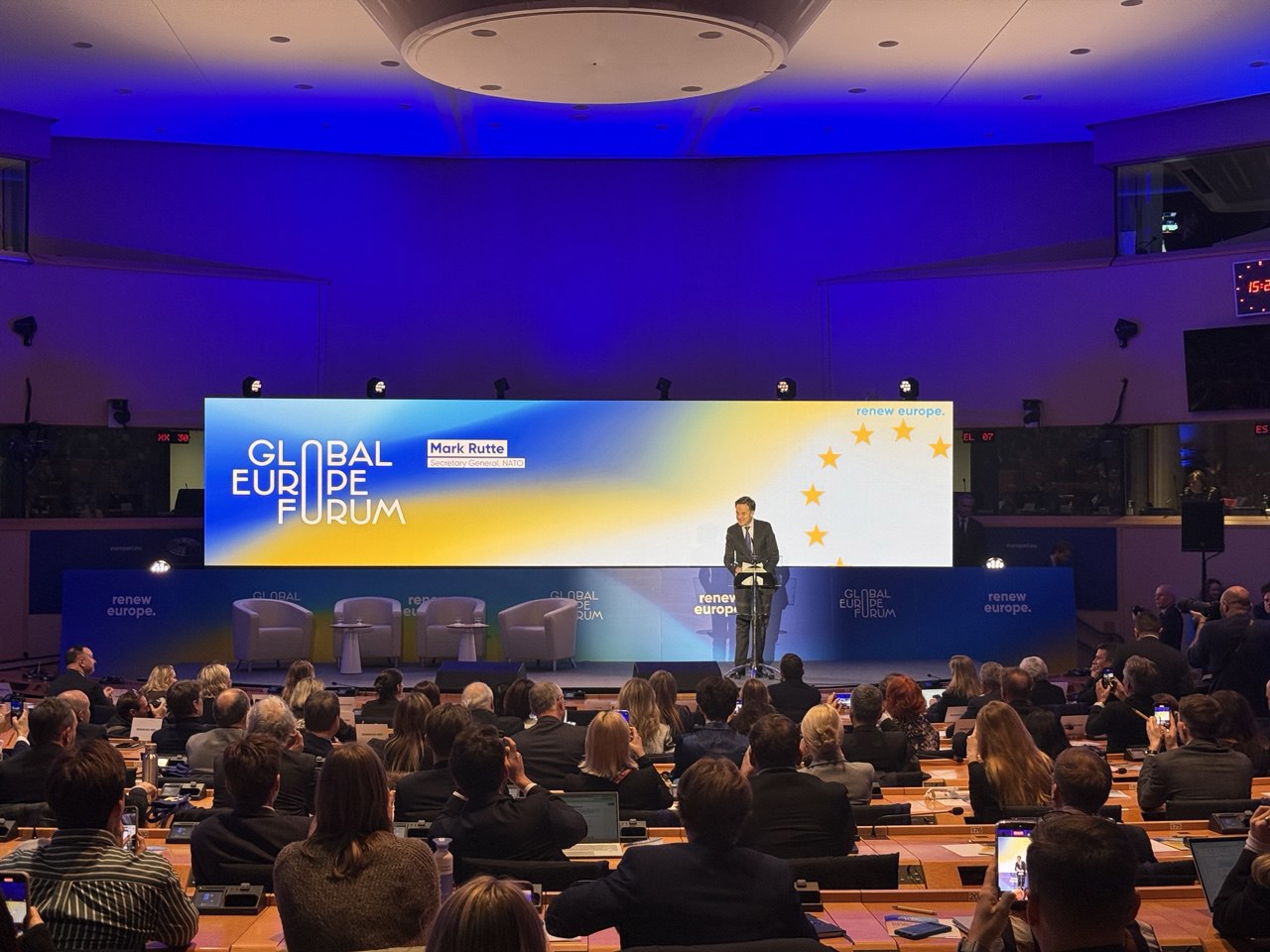Kremlin faces deep budget, inflation, banking crisis

Russia's economy has entered a critical phase, with economic stagnation, accelerating inflation, and a budget crisis converging into an imminent threat to internal stability.
This is the conclusion of exiled Russian economist Igor Lipsits, who, in an interview with Moldova 1 on Wednesday, warned that Russia is depleting its financial reserves and sacrificing civilian sectors to sustain its military effort in Ukraine. Financial expert Eugen Ghilețchi also notes that Russian government financial injections have temporarily maintained economic stability, but the negative effects are becoming evident.
"Data from recent months clearly confirms that Russia's economy has entered stagflation, and it's more than just stagnation. Most likely, we are already in a recession. The economy has exhausted all its reserves for sustaining production. The Russian government is pouring money into the system, hoping that will solve everything. "But bottlenecks are emerging," Lipsits stated, adding that even institutes close to the Kremlin acknowledge declines in GDP.
Key economic challenges
According to Lipsits, the defense industry can no longer support the economy, and civilian sectors are collapsing under the pressure of military spending. The situation is aggravated by a shortage of skilled labor and limited technical capabilities, while pressure in the banking sector is becoming increasingly acute.
"We have a dangerous combination: reduced technical capabilities, few skilled workers, and financial injections clearly aren't solving the problem. Many companies are close to bankruptcy, and the state is trying to save them by transferring the burden to banks. Balance sheets are becoming laden with non-performing loans. Russia is approaching a banking crisis," the economist warned.
An analysis of budget revenues shows that Russia has been facing a prolonged recession since the 2023–2024 period. The budget deficit initially estimated for 2025 has more than tripled.
"In November, it was approved at 1.23 trillion rubles. Now it's 3.83 trillion. This means Russia is effectively experiencing a 'budgetary squeeze' – where the state is cutting spending on its population and redirecting it towards the war. The Russian government has reduced funding for road infrastructure, cut support for civil aviation, robotics, and technological modernization – essential areas for the country's economic future," the expert enumerated during the "În Context" show on Moldova 1.
With declining oil revenues and a nearly empty national welfare fund, the Kremlin is running out of alternatives. In the context of the crisis, the Russian state is considering radical measures, according to the expert.
"The government is ready to resort to harsh measures, to practically begin the nationalization of private savings. This is evident from official statements by the Finance Minister, industrial leaders, and the military industry. The Ministry of Economic Development has projected that utility tariffs – water, heating, electricity – will increase by 40% over the next three years. If we add regional price hikes, we're talking about a total of 80%. Salaries are not increasing at the same pace," Lipsits concluded.
Sanctions and economic realities
Financial expert Eugen Ghilețchi also argues that Russia's reported data doesn't align with economic realities, and the current inflation dynamics signal a fragile economy.
"Russia operated on quite strong inertia due to the reorientation of its economy towards a war economy, which involved massive government sector investments in arms production and other related industries. This provided a stimulus for economic stability, but now certain problems are beginning to emerge. We see very high inflation, a lack of credit for the real economy, and consumer lending is practically at zero. The only loans still functioning are those subsidized by the state," he said.
International sanctions were expected to have a rapid impact; however, in the medium and long term, the consequences of international isolation are becoming increasingly evident, Ghilețchi affirms.
"The objective of the sanctions was to bring Russia to the negotiating table and to force Russia to its knees in the war with Ukraine, but they did not achieve their intended effect. When an economy isolates itself, capital and investments should leave Russia, and the EU is the largest investor in Russia. Practically all assets that belonged to European companies in Russia have been nationalized, and this provided a temporary economic boost for a few years. But the sanctions are starting to take effect," the expert pointed out.
It's worth noting that the Central Bank of Moscow reduced the key rate by one percentage point, to 20%. Authorities claim that inflation in Russia is 10-11%.
The European Union's 18th sanctions package against Russia includes additional restrictions in the energy, banking, oil, and other sectors.
Translation by Iurie Tataru





